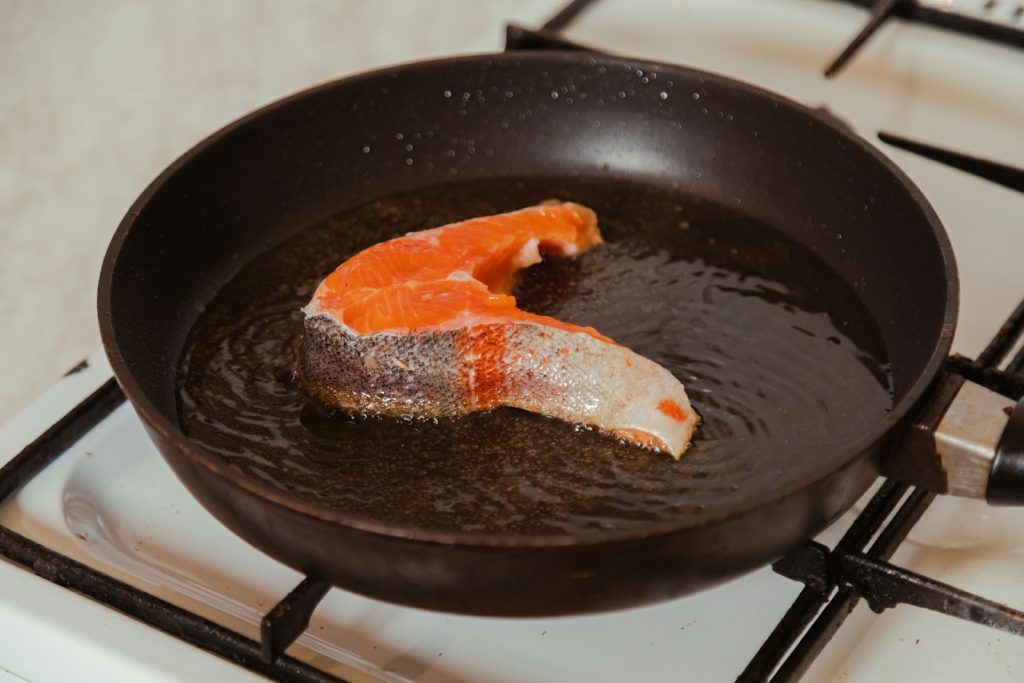13 Best Foods for Integumentary System Protection

The integumentary system, consisting of the skin, hair, nails, and associated glands, is the body’s largest organ system and serves as the first line of defense against environmental threats, including pathogens, harmful UV rays, and physical injuries. Protecting the integumentary system is vital for overall health, as it plays a critical role in immune function, thermoregulation, and sensory reception.
While topical treatments and skincare routines are essential for maintaining healthy skin, hair, and nails, diet also plays a crucial role in protecting and nourishing the integumentary system. The nutrients we consume directly impact the integrity, appearance, and functionality of our skin and its associated structures. In this article, we will explore 13 of the best foods that promote integumentary system protection by providing essential nutrients such as antioxidants, vitamins, minerals, and healthy fats.
1. Salmon: Rich in Omega-3 Fatty Acids for Skin Health
Salmon is a fatty fish loaded with omega-3 fatty acids, which are essential for maintaining the skin’s protective barrier. Omega-3s help reduce inflammation and protect the skin from the damaging effects of UV rays and environmental pollutants. They also help maintain the skin’s natural moisture balance, preventing dryness, flakiness, and redness.
In addition to omega-3s, salmon contains astaxanthin, a potent antioxidant that gives the fish its pinkish hue. Astaxanthin has been shown to protect skin cells from oxidative stress and improve skin elasticity, reducing the appearance of fine lines and wrinkles.
Consuming salmon regularly can help keep the skin supple and hydrated while protecting it from inflammation and environmental damage.
2. Avocados: A Source of Healthy Fats and Vitamin E
Avocados are a nutrient-dense fruit that provides healthy monounsaturated fats and vitamin E, both of which are important for skin health. The fats in avocados help nourish and moisturize the skin from within, while vitamin E acts as an antioxidant, protecting the skin from oxidative damage caused by free radicals.
Vitamin E is particularly beneficial for protecting the skin against UV-induced damage and helping prevent premature aging. It also works alongside vitamin C to boost collagen production, which is essential for maintaining skin elasticity and strength.
Avocados also contain compounds like biotin, a B vitamin that supports the health of the skin, hair, and nails. Eating avocados can promote a more radiant complexion and stronger, healthier nails and hair.
3. Sweet Potatoes: Packed with Beta-Carotene for Sun Protection
Sweet potatoes are rich in beta-carotene, a precursor to vitamin A that plays a crucial role in maintaining healthy skin. Beta-carotene helps protect the skin from sun damage by acting as a natural sunblock from within, reducing the risk of sunburn and premature aging caused by UV exposure.
Vitamin A also supports the growth and repair of skin cells, promoting a healthy turnover of cells to keep the skin smooth and youthful. In addition, beta-carotene is a powerful antioxidant that helps reduce oxidative stress and inflammation in the skin.
Including sweet potatoes in your diet can enhance your skin’s natural defense against UV radiation and improve overall skin tone and texture.
4. Walnuts: Omega-3s and Antioxidants for Skin and Hair
Walnuts are an excellent source of omega-3 fatty acids, vitamin E, and zinc, all of which are crucial for maintaining healthy skin and hair. Omega-3s in walnuts help reduce inflammation and keep the skin’s moisture barrier intact, preventing dryness and irritation.
Walnuts also contain significant amounts of antioxidants like vitamin E and polyphenols, which protect skin cells from damage caused by free radicals. These antioxidants help fight the signs of aging, such as wrinkles, sagging skin, and age spots.
The zinc in walnuts supports wound healing and helps combat acne by regulating sebum production and reducing inflammation. Including a handful of walnuts in your daily diet can promote clearer skin, stronger hair, and overall integumentary health.
5. Blueberries: Antioxidant Powerhouses for Skin Protection
Blueberries are among the most potent sources of antioxidants, particularly vitamin C and anthocyanins, which are known for their ability to protect the skin from oxidative stress. The antioxidants in blueberries help neutralize free radicals, which are generated by UV exposure, pollution, and other environmental factors.
Vitamin C in blueberries plays a critical role in collagen synthesis, helping to keep the skin firm and resilient. Collagen is essential for preventing sagging and maintaining the skin’s structural integrity. Anthocyanins, the pigments that give blueberries their vibrant color, help protect the skin from UV damage and promote a more even skin tone.
Eating blueberries regularly can help protect the skin from environmental damage, reduce inflammation, and promote a more youthful complexion.
6. Spinach: Rich in Vitamins A and C for Skin Repair
Spinach is a leafy green vegetable loaded with vitamins A, C, and K, as well as folate and iron, all of which are essential for maintaining healthy skin. Vitamin A, in the form of beta-carotene, helps repair and maintain skin tissue, preventing dryness and flakiness. It also supports cell turnover, promoting a more radiant and youthful appearance.
Vitamin C in spinach aids in collagen production, which is crucial for maintaining the skin’s elasticity and preventing wrinkles. The combination of vitamins A and C makes spinach a powerful food for skin repair and protection against environmental stressors.
Additionally, the antioxidants in spinach help protect the skin from the harmful effects of free radicals and inflammation. Regular consumption of spinach can help keep the skin smooth, hydrated, and resilient.
7. Tomatoes: Lycopene for UV Protection
Tomatoes are a rich source of lycopene, a carotenoid that gives tomatoes their red color and offers protective benefits against UV radiation. Lycopene acts as an internal sunblock by reducing the skin’s sensitivity to UV light, helping prevent sunburn and UV-induced aging.
Tomatoes also contain vitamin C, which supports collagen production and helps maintain skin firmness. The antioxidant properties of lycopene and vitamin C work together to protect the skin from free radical damage, reducing the risk of wrinkles, age spots, and other signs of aging.
Eating cooked tomatoes, which contain higher levels of bioavailable lycopene, can enhance the skin’s natural defense against UV damage and improve overall skin health.
8. Eggs: A Source of Biotin for Skin, Hair, and Nail Strength
Eggs are an excellent source of biotin, a B vitamin that is essential for maintaining the health of the skin, hair, and nails. Biotin supports the production of keratin, a protein that makes up the structural foundation of hair and nails. Deficiencies in biotin can lead to brittle nails, hair loss, and skin rashes.
In addition to biotin, eggs are rich in protein, which is necessary for the growth and repair of skin cells. The high protein content in eggs helps strengthen the skin’s natural barrier, promoting smoothness and resilience.
Eating eggs regularly can support stronger hair and nails while promoting skin health by providing essential nutrients like biotin and protein.
9. Carrots: Beta-Carotene for Skin Protection
Like sweet potatoes, carrots are an excellent source of beta-carotene, a powerful antioxidant that converts to vitamin A in the body. Vitamin A is essential for maintaining the health of the skin by promoting cell turnover, protecting against sun damage, and preventing dryness and irritation.
The beta-carotene in carrots also acts as a natural skin protector, helping to defend the skin against the harmful effects of UV radiation and reducing the risk of sunburn. Regular consumption of carrots can improve skin tone, texture, and overall skin health.
10. Almonds: Vitamin E for Skin Hydration and Protection
Almonds are one of the best natural sources of vitamin E, an essential antioxidant that plays a key role in maintaining skin hydration and protecting the skin from oxidative damage. Vitamin E helps neutralize free radicals generated by UV exposure, pollution, and other environmental stressors, thereby reducing the risk of premature aging.
Vitamin E also supports the skin’s ability to retain moisture, keeping it soft, smooth, and hydrated. By consuming almonds regularly, you can promote healthy skin from the inside out and help prevent the formation of fine lines, wrinkles, and age spots.
11. Green Tea: Polyphenols for Skin Protection
Green tea is rich in polyphenols, particularly catechins, which have been shown to have anti-inflammatory and antioxidant effects on the skin. These compounds help protect the skin from UV-induced damage, reduce redness and swelling, and promote a more even skin tone.
Green tea’s ability to reduce inflammation also makes it beneficial for individuals with acne or other inflammatory skin conditions. The antioxidants in green tea help fight free radicals, which can accelerate the aging process and contribute to the formation of wrinkles and age spots.
Drinking green tea regularly can enhance your skin’s defense against environmental damage and promote a healthier, more radiant complexion.
12. Cucumber: Hydration and Skin Soothing
Cucumbers are composed of about 96% water, making them an excellent food for hydration. Keeping the skin hydrated is essential for maintaining its elasticity and preventing dryness and flakiness. The high water content in cucumbers helps replenish the skin’s moisture levels, promoting a smooth and supple complexion.
Cucumbers also contain vitamins C and K, which are known for their skin-soothing properties. Vitamin C supports collagen production, while vitamin K helps reduce dark circles and puffiness around the eyes.
Incorporating cucumbers into your diet can help keep the skin hydrated, calm irritation, and promote a more youthful appearance.
13. Pumpkin Seeds: Zinc for Skin and Hair Health
Pumpkin seeds are a rich source of zinc, a mineral that plays a vital role in maintaining healthy skin and hair. Zinc helps regulate oil production in the skin, which can reduce the occurrence of acne and prevent clogged pores. It also supports wound healing and helps repair damaged skin cells.
In addition to zinc, pumpkin seeds contain vitamin E and magnesium, which contribute to skin hydration and protect against oxidative stress. Consuming pumpkin seeds regularly can promote clearer skin, stronger nails, and healthier hair.
Conclusion
Protecting and nourishing the integumentary system requires a balanced diet rich in vitamins, minerals, healthy fats, and antioxidants. By incorporating these 13 nutrient-dense foods—salmon, avocados, sweet potatoes, walnuts, blueberries, spinach, tomatoes, eggs, carrots, almonds, green tea, cucumbers, and pumpkin seeds—you can promote the health of your skin, hair, and nails from the inside out.
These foods work together to reduce inflammation, protect against environmental damage, support collagen production, and keep the skin hydrated and youthful. By making smart dietary choices, you can help ensure that your integumentary system remains strong, resilient, and radiant for years to come.



